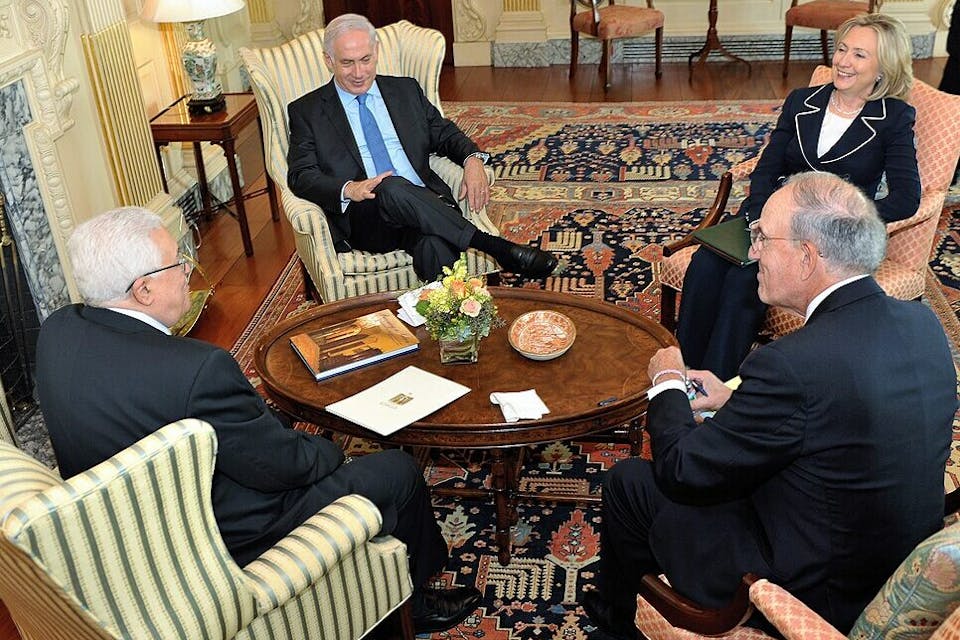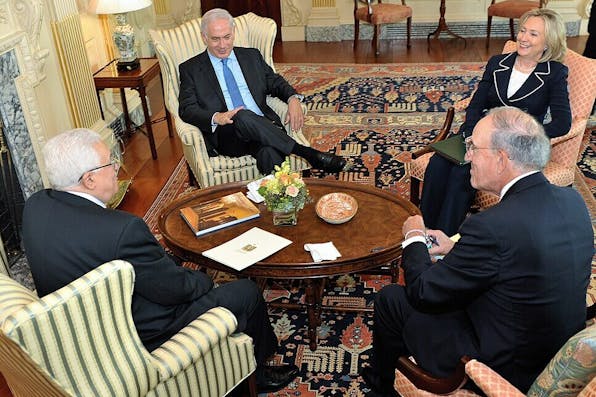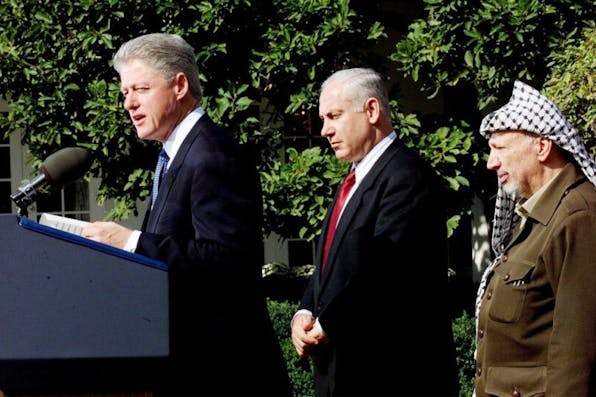
October 21, 2024
Maintaining the Status Quo Is a Choice
When every available cure has catastrophic side effects, it can be reasonable to prefer chronic illness.
In “The Failed Concepts That Brought Israel to October 7,” Shany Mor identifies four factors that made Hamas’s attack on Israel possible: (1) the failed concept of the status quo, (2) the settler movement’s state capture and its pernicious influence on Benjamin Netanyahu, (3) the failed concept of the peace processors, and (4) Hamas’s rule in the Gaza Strip and Hizballah’s in southern Lebanon as unprecedented experiments with “anti-sovereign governance.” The third thesis mostly rehashes ideas familiar to those who read Mor’s excellent Mosaic essay, “The Return of the Peace Processors.” I agree with everything he writes there. And the reconceptualization of Iran proxies as “anti-sovereign” statelets, allowed to exist by NGOs, Arab states, the Western establishment, and also by the peace-processor mindset, is fascinating and insightful. I will focus instead on Mor’s first two points, which I think are the analytically weakest links in his otherwise excellent piece.
Mor describes Netanyahu as skeptical of the intentions of both Israel’s foes and its ostensible friends, as a procrastinator who prefers deferral to making difficult strategic decisions, and as overly reliant on messaging at the expense policy. I will return to the issue of procrastination, which in some cases is part of a certain kind of strategic thinking, albeit one whose premises are alien both to Mor and to the settler lobby. But first, I want to begin with an aspect of this part of the piece that I found puzzling. The article’s tone is critical of Netanyahu’s skepticism and of his tendency to defer decisions, but to my mind, almost everything else in the article justifies these mental habits. Most importantly, Netanyahu predicted that both the Oslo process and the Gaza disengagement would have disastrous consequences, and they did—much as Mor himself concedes.
This raises the question of where, exactly, Netanyahu erred. What was his part in the flawed conception that led to October 7? I can discern two arguments in Mor’s article. The first is that because Netanyahu is beholden to the settlement movement, the army was too busy protecting settlers in Huwara and Homesh. As a result, it redirected manpower from the southern border and thereby left the Gaza envelope insufficiently protected. While I have heard this argument several times over the past year, it strikes me as very weak. It may be a technically correct description of how troops were deployed on that particular fateful day, but it focuses on an easily fixable logistical problem, not some massive strategic miscalculation that inevitably flowed from a failed conception of the Israeli-Arab conflict.
Responses to October ’s Essay

October 2024
The Strategic Failures of October 7, One Year Later: A Symposium
By The Editors
October 2024
Yes, Bad Policies Paved the Way to October 7. But What If They Were the Only Policies Available?
By Evelyn Gordon
October 2024
Maintaining the Status Quo Is a Choice
By Rafi DeMogge
October 2024
The Peace Process Failed, but Its Bad Assumptions Live On
By Gadi Taub
October 2024
Jews Living in the West Bank Didn’t Undermine Israel’s Security or Empower Hamas
By Cole S. Aronson, Avi Bell
October 2024
Israel’s Mistake Was Viewing Hamas as a Minor Nuisance
By Amnon Lord
October 2024
The Policies of October 6 Kept Israel Safe—Until They Didn’t
By Shany Mor